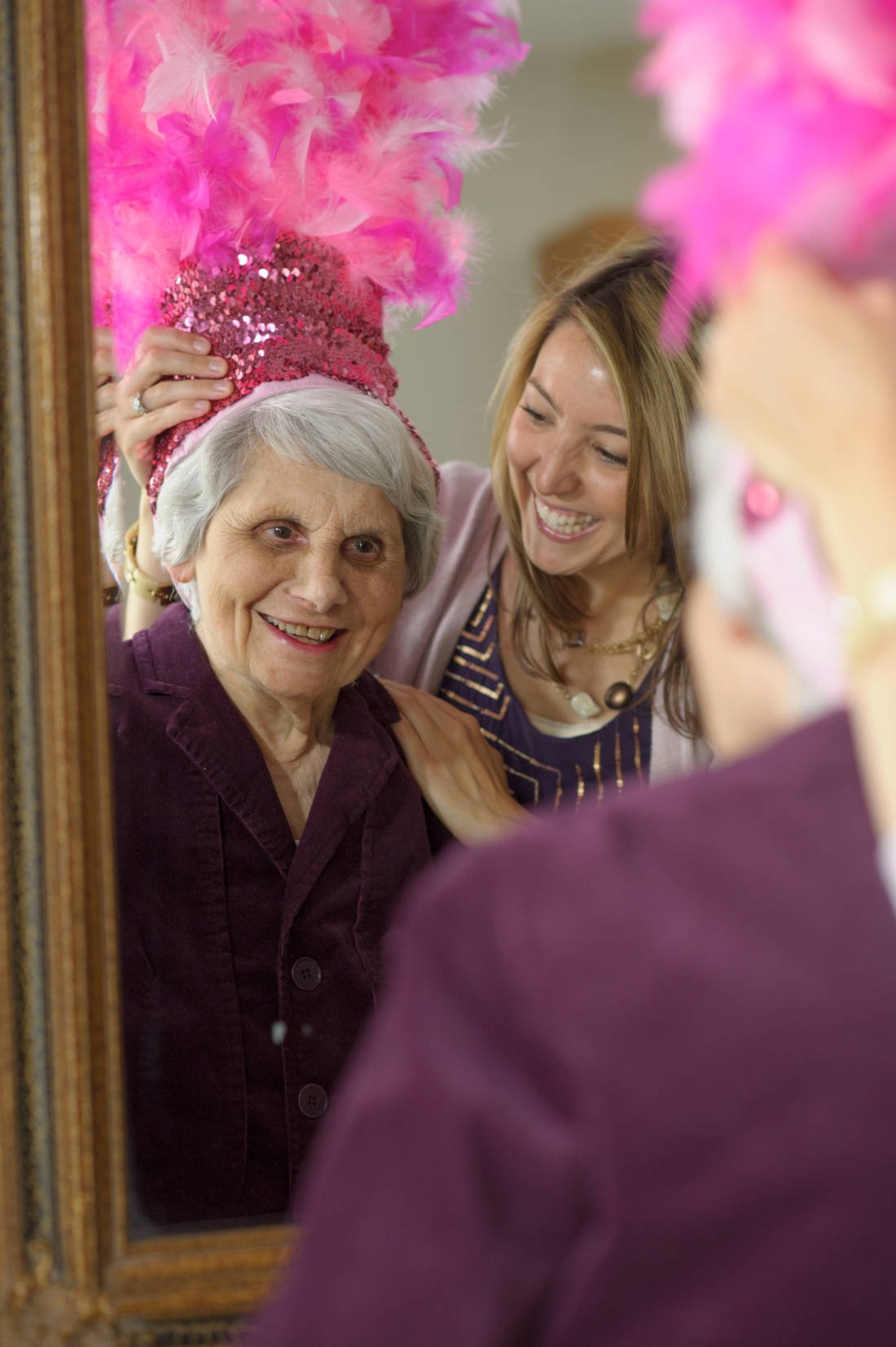Questioning Your Caregiving Skills? Here’s What to Do....
assisted living | caregiver tips | Aging & Caregiving
 If you’re wondering whether you’re up to the task of caregiving, you’re not alone: self-doubt goes with the territory.
If you’re wondering whether you’re up to the task of caregiving, you’re not alone: self-doubt goes with the territory.
The next time you’re feeling inferior about your caregiving skills, focus on what you’re doing right: providing essential help and support for your aging loved one.
You Matter...Here's Why
Rosalynn Carter said, “There are only four kinds of people in the world. Those who have been caregivers, those who are currently caregivers, those who will be caregivers, and those who will need caregivers.”
In short, caregivers have an incredible impact on society, and their impact is only growing as the 76 million baby boomers continue to enter their golden years at a rate of 10,000 people a day. In fact, by the time all of the baby boomers are age 65 or older, they’ll account for a whopping 20 percent of the U.S. population, according to U.S. census data. Those aging adults will likely need a caregiver at some point.
In light of that reality and instead of questioning your flaws or failings, focus on this important fact: while you may not have trained to be a caregiver and therefore feel unprepared for the role, you are performing an essential job. Caring for someone in need, especially a loved one, can help lessen their anxiety, strengthen their mind and body, and lift their spirits.
Help For The Caregiver
Support Groups - Caregiver support groups offer a safe environment for sharing stories and learning from the’ experiences of others. Because caregivers are susceptible to isolation and depression, they are vulnerable to increased feelings of worry and self-doubt.
Talking to others offers valuable opportunities for connection and encouragement. If you can’t attend a physical support group, there are plenty of online caregiving communities, as well. Do support groups sound awkward and intimidating to you? Cultivate some close relationships with friends or neighbors, or speak to a counselor or advisor who can offer to listen and support you.
Community Resources - Many other community resources are also designed to help you gain confidence in your caregiving capabilities. For example, the American Red Cross offers free family caregiver classes which can help you gain a better understanding of topics ranging from personal care and nutrition to home safety and legal and financial issues.
Websites like mmLearn provide helpful caregiver assistance videos on everything from dealing with caregiver stress to understanding assistive devices. Many local hospitals, senior centers, or senior living communities host caregiver education sessions or other events geared toward providing resources and family support - check out all they have to offer and take advantage of free programs and screenings. Explore some additional links here: http://www.umh.org/resource-links
Senior Living Communities - Senior living communities help support caregivers by providing a safe, secure and welcoming environment for their loved one, whether they offer independent living, assisted living, or memory support. Not only do they offer conversation, camaraderie, and a maintenance-free lifestyle, but they also can arrange for much needed assistance and services that can help your loved one to age in place.
This relieves the burden that falls primarily on caregivers and allows for a restored balance in your relationship with your loved one. Instead of providing ALL of the care, you can care for your loved one without the responsibilities of filling prescriptions, doing laundry, making meals, and providing transportation.
Many caregivers feel frustrated and alone in the task of caring for a loved one and most days may feel as if they are doing everything wrong. You ARE making a difference, even if you feel like nothing you do is helping anything.Let go of feelings of inadequacy and instead focus on your strengths and contributions.Not only will you and your loved one both enjoy a more satisfying quality of life, but you'll also grow stronger in your relationship.
Key Takeaways
- While it's natural to question your caregiving skills, focusing on your weaknesses or inadequacies does more harm than good.
- To ward off these feelings, think of your strengths: What are you good at? Where are you making the most significant contributions? How would your loved one manage without your efforts?
- Help is available from a variety of resources, including your local senior center, the Red Cross, and a variety of online sites for caregivers.
About Marissa Salvesen
My journey into the world of senior living began when I started working for United Methodist Homes in 2010. Starting as an Activities Director at one of our award-winning assisted and independent living communities and then transitioning to Marketing and Promotions Manager for UMH, I now work as the Manager of Mission Development, fostering the Mission and Values of our organization. I love sharing stories about the many ways we build meaningful relationships and enrich the lives of those we serve, and am proud to be part of building UMH’s 140-year legacy of caring. Wondering what makes our communities such special places to live and work? Connect with me and find out!

Our Blog is a 2016 Platinum Generations Award Winner! The Generations Award is an annual international competition for excellence in senior marketing recognizing professionals who have communicated to the 50+ Mature Markets.



